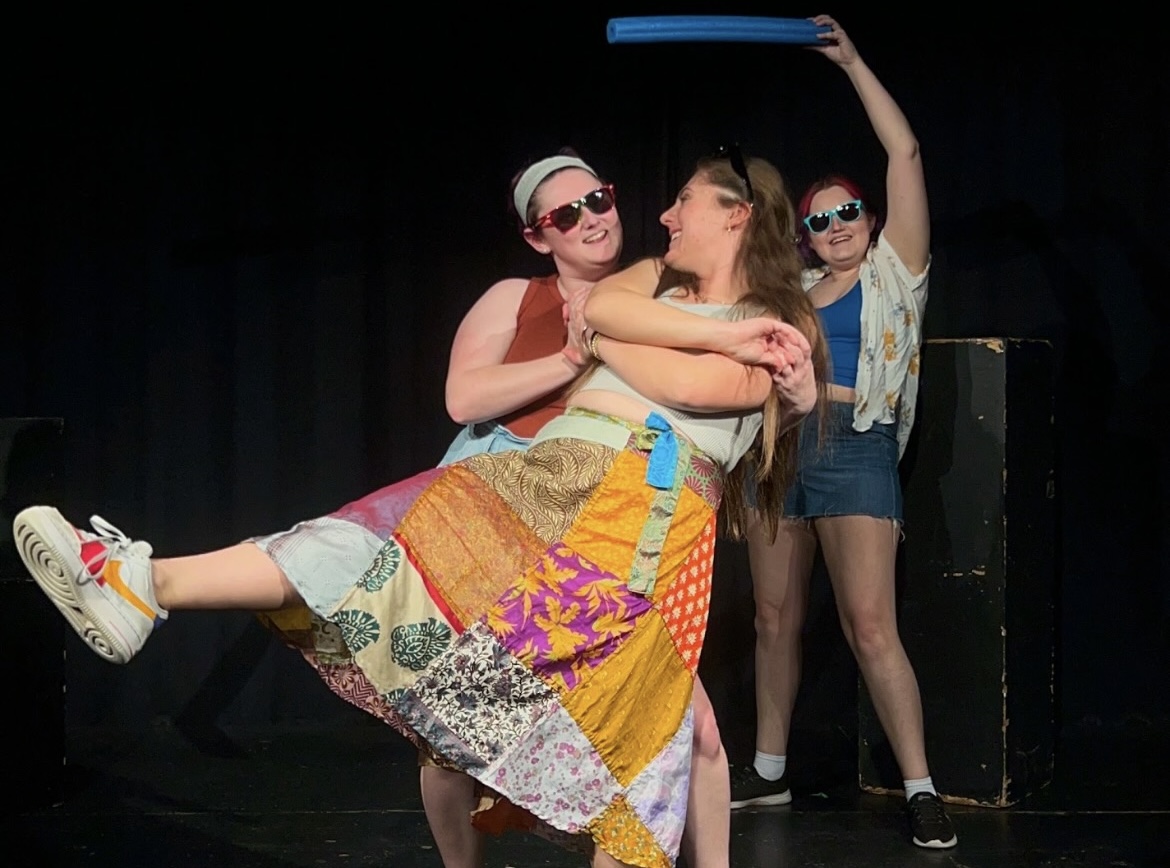
By KennedyRose Stiver
Directing their focus towards the practice of consent both on and off stage, the Puget Sound theater department strives to create a proactive and respectful space in which students can advocate for their boundaries.
Jacob Zwiernikowski (’28) addresses the harmful and prominent tendency within the professional community for actors to feel that they have the least amount of power in the room. “You’re fortunate if you are hired. And that leads to people lowering their own standards in whatever way that may be,” said Zwiernikowski.
With this notion in mind, the Theatre Arts Department aims to set a high standard for what actors should expect from the working environment. Department chair and professional intimacy director Jess K. Smith strives to allow students to name and articulate their boundaries specifically through the use of consent discussion and practice in both classroom and stage production environments.
“I trust that part of what students understand through these practices is that we care about their wellbeing and believe that great art doesn’t require artists to abandon themselves in the process,” Smith said.
Currently, there are various boundary and consent workshops in which students rehearse with each other. The workshops first discuss various terms of consent then later actors must practice means of consent through various exercises. Zwiernikowski explains one exercise in particular known as “Fences and Gates,” in which the actor defines their physical boundaries using the terms fences and gates. The actor starts by describing which parts of their body they would consider ‘fences’ — areas in which they would be uncomfortable with physical contact. The actor must also describe their ‘gate’ areas, which are those that another actor may be able to come into contact with if previously discussed. “If I’m in a scene with somebody, I want to know that they’re going to do it before they do it,” Zwiernikowski said.
Additionally, since 2021, Smith has led each boundary and consent workshop within the department. Starting this year, the department’s student leaders — composed of juniors and seniors who have been in this department for multiple years and have gone through a number of the workshops themselves — are able to lead these workshops.
Senior Julia Pearl-Styles (’25) facilitated a boundary and consent workshop for the main stage fall production of “The Importance of Being Earnest,” cast within her role as assistant director. Styles noted the impact of her leadership as a fellow student. “There’s something really valuable about having that student to student connection, because it is much more personal,” Styles said.
Additionally, the initial rehearsals of “The Importance of Being Earnest” examined various readings as well as stage directions from the script, but Zwiernikowski emphasized the script was used as a guideline rather than a rule.
The discussion and practice of consent continues within other projects in the department, as director for the musical theater club Curtain Call, Camden Allvey (‘27), noted in her initial message to members. “We are a club, and this is a participatory event, and we want you to feel comfortable,” Allvey said.
Along with the prevention of harmful practices, the department also trains their actors to prepare for scenarios in which boundaries are violated. Smith explains that the procedure is to address an issue at the lowest level with familiarity, preventing anything from escalating further.
“Part of the goal behind all of this work is to be proactive in terms of creating a culture of consent in our department and with our students, rather than being responsive to when harm happens,” Smith said.
Similarly, Zwiernikowski emphasizes that with acting comes the risk of vulnerability and putting oneself out there. “Part of the requirements for that show coming together is consent. And so it’s not just a hypothetical, you know, worst case scenario, this might happen to you. It’s part of the work.” Zwiernikowski said.
Acknowledging the ability of those on stage to continue practicing consent work, Smith encourages students across the campus to normalize discussion surrounding boundaries and consent.
“I’d argue that all humans could benefit from these skills, but artists are often in situations in which having practice and ease with these skills can support their ability to do their best work,” Smith said.
